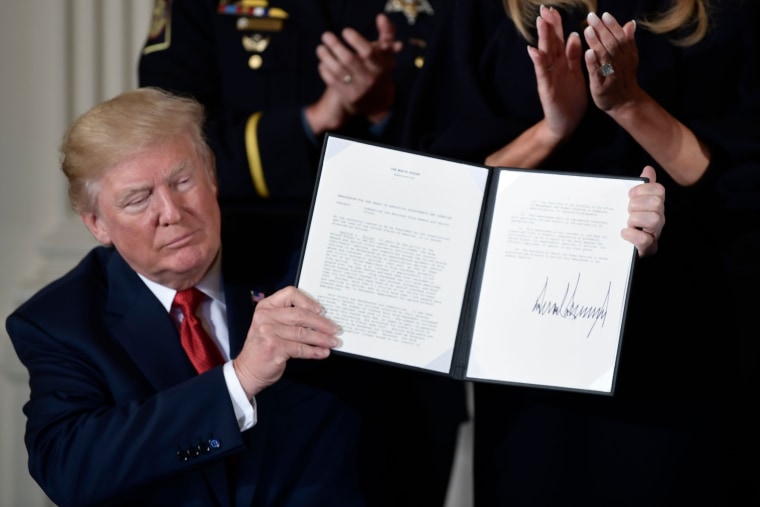If you focus on solely to Donald Trump's rhetoric about the opioid crisis, the president appears to take the public-health emergency seriously. It's his actions that are the problem.
The first sign of trouble came over the summer when Trump made an official public declaration that the opioid crisis is "a national emergency." He then waited 11 weeks before issuing an underwhelming White House directive on the issue.
Making matters worse, Politico reported last week that while Trump's official declaration set in motion a 90-day period of mobilization, that declaration runs out on Jan. 23, "and beyond drawing more attention to the crisis, virtually nothing of consequence has been done."
That's not all. Trump also tapped a political pollster with no relevant experience to oversee the White House's response to the opioid crisis, and the president's original choice to serve as the nation's "drug czar" was accused of taking steps to weaken the DEA's authority over opioids after accepting generous campaign contributions from pharmaceutical companies.
And then there's Taylor Weyeneth, who's taken on a leading role in responding to the opioid epidemic despite a dubious background. The Washington Post reported over the weekend on the former Trump campaign aide who's now an administrative leader in Trump's drug policy office:
On Jan. 23, 2017, Weyeneth joined the administration as an assistant at the Treasury Department. He was a "General Schedule 11" employee, according to data maintained by ProPublica. In the Washington area, a federal worker at that level last year generally earned between $66,510 and $86,459, according to government data.He moved to [the Office of National Drug Control Policy] in March, his résumés show, and was named deputy chief of staff in July, according to his LinkedIn page.Under the Clinton, Bush and Obama administrations, the office has attracted some prominent law enforcement, public health and military experts. Some recent deputy chiefs of staff had years of experience working in government or public policy before being appointed.
Weyeneth, a 24-year-old former campaign aide, has no such experience. Indeed, the Post identified "inconsistencies" in the young man's resume, including claims of a post-graduate degree Weyeneth reportedly sought but did not earn, and work he did as a teenager at a firm that was "secretly processing illegal steroids from China."
There's no shortage of relevant angles to a story like this, but near the top of the list is the fact that Trump World, led by an amateur president, has an unfortunate penchant for putting unqualified people in positions of enormous authority. Eric Trump's former wedding planner, for example, was nominated to run federal HUD operations in New York and New Jersey.
But even putting that aside, given what we've seen in recent months, is anyone seriously prepared to argue that the White House is leading an effective and responsible campaign to address the nation's opioid epidemic?
